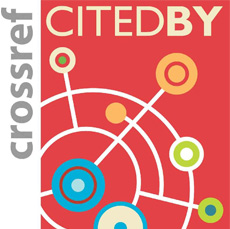ISSN : 1226-4946(Print)
ISSN : 2288-5412(Online)
Wordsworth and Yeats: The Duality of Violence
Ji-Ah Lee received her master degree at the Department of English, Pusan National University, 609-735, Korea.
Abstract
This article deals with the duality of violence in Wordsworth and Yeats. They desire the violence to change or reform a particular power and at the same time feel guilty of it; their fantasy exemplifies how easily opposition to the power merely reproduces it. Wordsworth in the Prelude feels compelled to reestablish his innocence by blaming that violence upon Robespierre: “I, Robespieeree, accuse thee!”. He, however, conflicts with his enemy in a way to suggest he himself was Robespieeree. Yeats in “Easter 1916” and “Meditations in Time of Civil War” explicates the duality of violence to create culture: it can both sublimate its power into civilization and inevitably destroy the social order one has so laboriously constructed.
Keywords :
워즈워스,
예이츠,
폭력,
프랑스혁명,
부활절봉기,
아일랜드내전,
Wordsworth,
Yeats,
Violence,
French Revolution,
the Easter Uprising,
the Irish Civil War
워즈워스와 예이츠: 폭력의 이중성
이지아
이지아는 부산대학교 영어영문학과 석사과정을 졸업했다.
초록
본고는 워즈워스와 예이츠의 시에서 나타나는 폭력의 이중성을 다룬다. 두 시인은 특정한 힘을 변화시키거나 개혁하기 위해 폭력을 원하면서도 동시에 그것에 대한 죄의식을 느낀다. 그들의 환상은 그 힘에 대항하는 것이 단지 그것을 얼마나 쉽게 재생산하는 것일 뿐인지를 구체적으로 보여준다. 워즈워스는 로베스피어리가 가한 폭력을 비난함으로써 자신의 죄없음을 회복해야한다고 느낀다. “나는, 로베스피어리, 당신을 고발한다!” 그러나 그는 자신이 로베스피어리인 것처럼 암시하는 방식으로 자신의 적과 자기 자신 사이에서 갈등한다. 예이츠는 1916년 부활절 과 내전기의 사색 에서 폭력의 이중성이 문화를 창조하는 것으로 해석한다. 폭력은 자신의 힘을 문명으로 승화시키면서도 그와 동시에 매우 공들여 건설된 사회 질서를 불가피하게 파괴할 수 있는 것이다.










